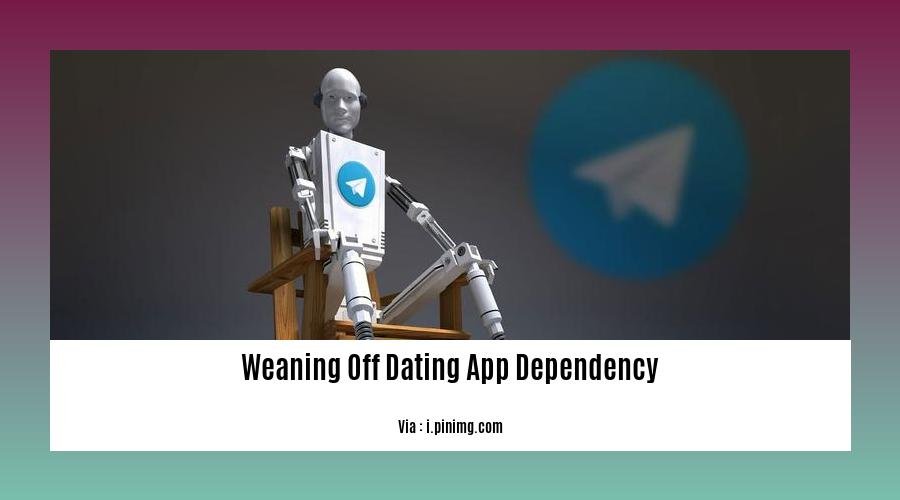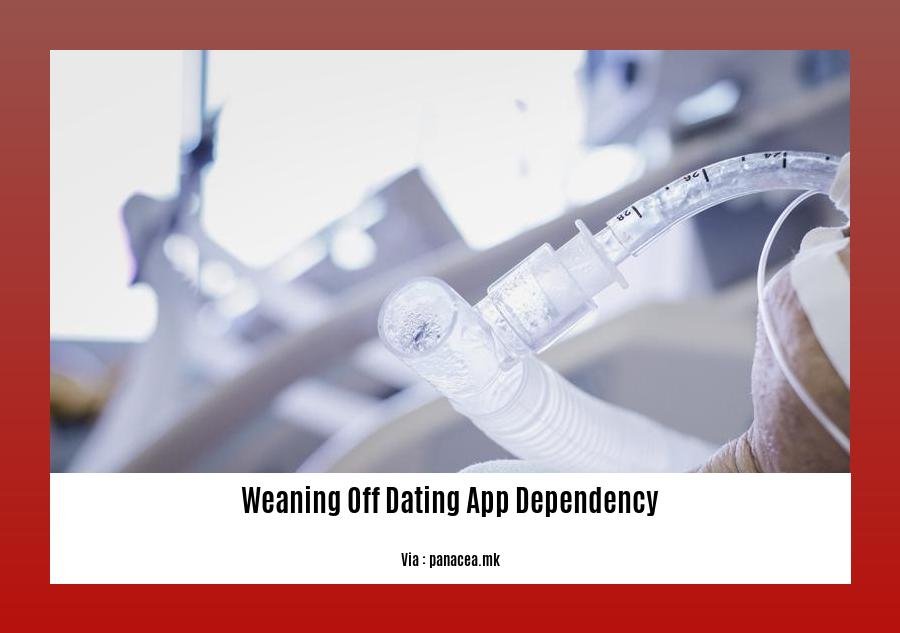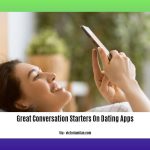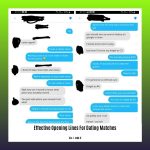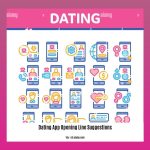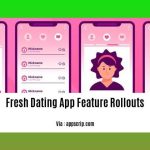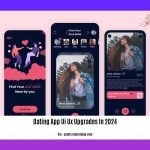In the labyrinthine realm of digital dating, where swipes and matches reign supreme, the allure of dating apps can be both intoxicating and overwhelming. However, “Weaning Off Dating App Dependency: Reclaiming Control Over Your Love Life” explores the growing realization that excessive app use can hinder genuine connections. This article delves into the psychological and practical challenges faced by those seeking to break free from app dependency and cultivate more fulfilling, human-centric relationships.
Key Takeaways:
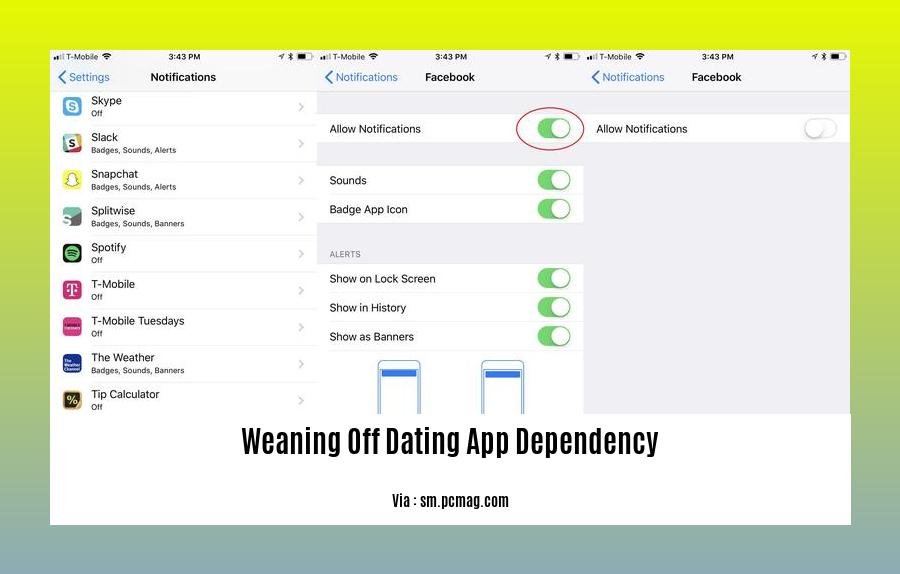
- Dating apps may foster dependency as a coping mechanism, reducing user satisfaction.
- Excessive app use can be addictive, serving as an escape from negative emotions.
- Match Group’s control over multiple popular dating apps raises concerns about market influence.
- “Dating-app fatigue” is prevalent, with users seeking breaks or quitting apps due to overindulgence.
Weaning Off Dating App Dependency
If dating apps have become an unhealthy coping mechanism, it’s time to take a step back. Weaning off dating app dependency can be challenging, but it’s essential for reclaiming control over your love life.
Reasons for Dating App Dependency
- Emotional Regulation: Some use dating apps to cope with depression or anxiety, leading to lower user satisfaction.
- Addiction: Dating apps can be addictive, causing excessive use as an escape from negative feelings.
Benefits of Reducing Dating App Use
- Improved Mental Health: Breaking the cycle of app addiction can alleviate anxiety and depression.
- Enhanced Self-Esteem: Relying less on external validation from apps can boost self-confidence.
- Increased Authenticity: Offline interactions promote genuine connections, free from the filters and curated profiles of dating apps.
Steps to Wean Off Dating Apps
- Set Boundaries: Limit daily app usage or take breaks to minimize dependency.
- Identify Triggers: Understand the situations or emotions that drive app use and find healthier alternatives.
- Seek Professional Help: If excessive app use is negatively impacting mental health, consider therapy to address underlying issues.
- Explore Other Ways to Connect: Engage in activities or join groups that foster social interactions outside of dating apps.
- Practice Self-Care: Prioritize activities that promote well-being, such as exercise, meditation, or spending time in nature.
Conclusion
Weaning off dating app dependency is a journey of self-discovery and empowerment. By breaking the cycle of addiction, you can cultivate healthier relationships with yourself and others, opening the door to more meaningful connections.
Looking for love or just a hot date? Dating After Deleting Dating Apps can help you get back to the dating pool without having to get through a pile of incorrect matches and bots. Looking for a How-To on getting back to IRL dating? Here are some tips to transition from seeing love on your phone to seeing love in person Transitioning From Dating App Use.
Develop alternative strategies for meeting new people and connecting with others
In the realm of love and connection, it’s easy to get caught up in the endless swipes and virtual chats of dating apps. While these platforms can offer convenience and a wide pool of potential matches, they can also lead to dependency and a distorted view of relationships. To reclaim control over your dating life and cultivate more meaningful connections, it’s essential to develop alternative strategies for meeting new people and connecting with others.
Key Takeaways:
- Embrace in-person networking as a genuine way to make connections.
- Practice mirroring the other person’s behavior and language to foster deeper connections.
- Transition from online interactions to offline settings to strengthen bonds.
Expand your Social Circle through In-Person Activities
Networking, often associated with career advancement, can also be a valuable tool for meeting potential partners. Attend social events, join local clubs, or volunteer for causes you’re passionate about. These activities offer opportunities to connect with like-minded individuals and build authentic relationships. Remember, networking doesn’t have to feel opportunistic. Approach conversations with a genuine interest in others, and you may be surprised by the connections you make. [^1^]
Practice Active Listening and Mirroring
When engaging in conversations, pay undivided attention to the other person. Demonstrate active listening by nodding, maintaining eye contact, and asking thoughtful questions. Mirroring the other person’s behavior and language can also create a sense of rapport and foster deeper connections. Subtly mimic their body language, tone of voice, and choice of words to build rapport and show that you’re engaged. [^2^]
Transition from Online to Offline Interactions
Once you’ve established a connection online, don’t hesitate to take the relationship offline. Suggest meeting for coffee, exploring a local park, or attending an event together. In-person interactions allow you to experience each other’s energy, body language, and shared moments. This transition from virtual to real-world connections deepens the bond and creates a more authentic connection. [^3^]
Remember, building meaningful relationships takes time and effort. By embracing alternative strategies for meeting new people and connecting with others, you can broaden your social circle, enhance your communication skills, and create lasting connections that extend beyond the digital realm.
Practice Mindfulness and Self-compassion to Manage Urges and Emotional Challenges
Whether we’re navigating the highs and lows of dating app dependency or simply seeking emotional balance in the digital age, mindfulness and self-compassion can be our guiding light.
Key Takeaways:
“Mindfulness interventions can improve mindfulness, compassion, and self-compassion,” explains research published in the National Library of Medicine. By nurturing a non-judgmental awareness of present thoughts, feelings, and bodily sensations, we cultivate self-acceptance and empathy.
**Steps to Practice Mindful Self-Compassion:**
– **Acknowledge urges without judgment.** When an urge to engage with dating apps arises, simply notice it without labeling or resisting.
– **Explore the underlying emotions** that trigger these urges. Are you feeling lonely, stressed, or seeking validation?
– **Offer yourself self-compassion.** Treat yourself with the same kindness and understanding you would offer a close friend.
– **Mindfully regulate emotions:** Practice deep breathing, visualization, or positive affirmations to calm and soothe yourself.
Remember, urges are temporary and do not define us. **By practicing mindfulness and self-compassion, we empower ourselves to manage these challenges with grace and resilience.**
**Citation:**
[Mindfulness, Compassion, and Self-Compassion Among Health Care Professionals](
Seek Professional Help if Needed to Address Underlying Issues and Establish Healthier Dating Patterns
Dating app dependency can stem from underlying emotional triggers and challenges that require professional support. If you struggle to wean off dating apps despite repeated efforts, consider seeking help from a therapist or counselor. A mental health professional can help you understand the root causes of your app reliance, develop coping mechanisms, and establish healthier dating patterns.
Key Takeaways:
- Persistent dating app dependency can indicate deeper emotional issues.
- Professional help can provide personalized guidance and support.
- Therapy can help identify and address underlying psychological factors.
- Establishing healthier dating patterns requires addressing emotional triggers.
- Seeking professional help empowers you to take control of your dating life and foster meaningful connections.
Citation:
- The Dangers of Dating App Dependency and How to Break Free
